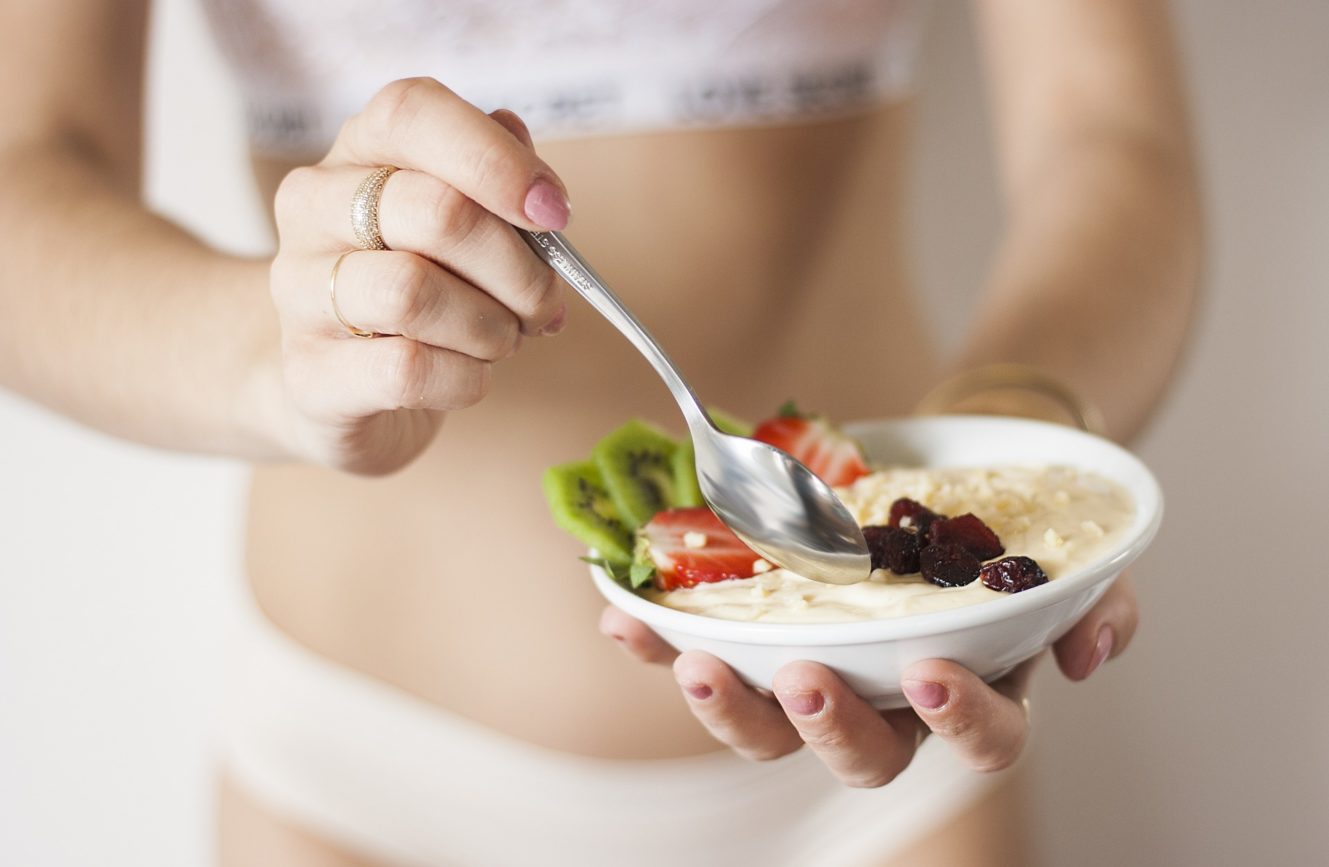Food and beverage serve as fuel for the body. The types of food, quality of food, nutrients consumed, amount, and timing all work together for the perfect equation that fuels the body to complete everyday tasks as well as specific sports nutrition.
SHOULD I EAT BEFORE I WORKOUT?
Most experts recommend eating a meal one to four hours prior to exercise. The Mayo Clinic recommends a full meal three to four hours prior but a smaller meal or snack if consumed closer to start time. The body needs time to focus on digesting the food before beginning exercise to avoid cramping and stomach distress.
Carbohydrates provide energy for the body as the muscles use the glucose from carbs as fuel. Carbohydrates include fruit in any form (fresh, frozen, dried, canned), rice or pasta, grains, and sweet snacks such as chocolate, cake, and ice cream. They are an essential part of pre-workout nutrition to provide sustained energy for the duration of exercise. All pre-workout meals should include carbs.
If your snack is closer to workout time, it will likely consist of only carbohydrates such as an apple, smoothie or a whole grain bagel.
Protein is another macronutrient that is crucial for athletes. It assists with building muscle mass as well as muscle recovery. If planning a meal or snack a few hours prior to workout, pair protein with carbs. Sources of protein include meat, fish, chicken, eggs, cheese, beans and nuts.
SAMPLE PRE-WORKOUT MEALS FROM THE ACADEMY OF NUTRITION AND DIETETICS
- A peanut butter and banana or peanut butter and jelly sandwich
- Greek yogurt with berries
- Oatmeal with low-fat milk and fruit
- Apple and peanut or almond butter
- Handful of nuts and raisins (two parts raisins: one part nuts)
WHAT DO I EAT AFTER I WORKOUT?
It is important to replenish your body again after exercise. The post- workout routine also consists of protein and carbohydrates, with an emphasis on protein for muscle recovery and repair. Refueling within the first thirty to sixty minutes will enhance the recovery process and help minimize post-workout fatigue. Just as it is important to eat to provide energy for your workout, it is equally important to provide nutrients quickly after to speed the healing process.
SAMPLE POST-WORKOUT MEALS FROM THE ACADEMY OF NUTRITION AND DIETETICS RECOMMEND
- Post-workout recovery smoothie (or post-workout smoothie made with low-fat milk and fruit)
- Low-fat chocolate milk
- Turkey on a whole-grain wrap with veggies
- Low-fat yogurt with berries
HYDRATION
For peak performance and minimal fatigue, staying hydrated is key. The American College of Sports Medicine (ACSM) recommends drinking sixteen to twenty ounces of water approximately four hours before commencement of exercise. They also recommend another eight to twelve ounces within approximately fifteen minutes before starting.
The Mayo Clinic recommends consuming between four to eight ounces every fifteen to twenty minutes during exercise. They also recommend following exercise with sixteen to twenty-four ounces of water for every pound of water weight lost during exercise to help replenish your system and flush out toxins.
Fueling the body before, during and after exercise is important for optimal performance. Eating and drinking enough can help the body repair faster, create more energy to power through the exercise, and minimize fatigue. Appropriate nutrition can also assist in meeting goals for weight loss, muscle building and overall health. Start with a simple formula of plenty of water before, during and after a workout as well as eating something before and after. As you adjust to this system, you will find what foods and timing work best for your body.
RELATED ARTICLES
Fitness and Nutrition: The Magic Formula

